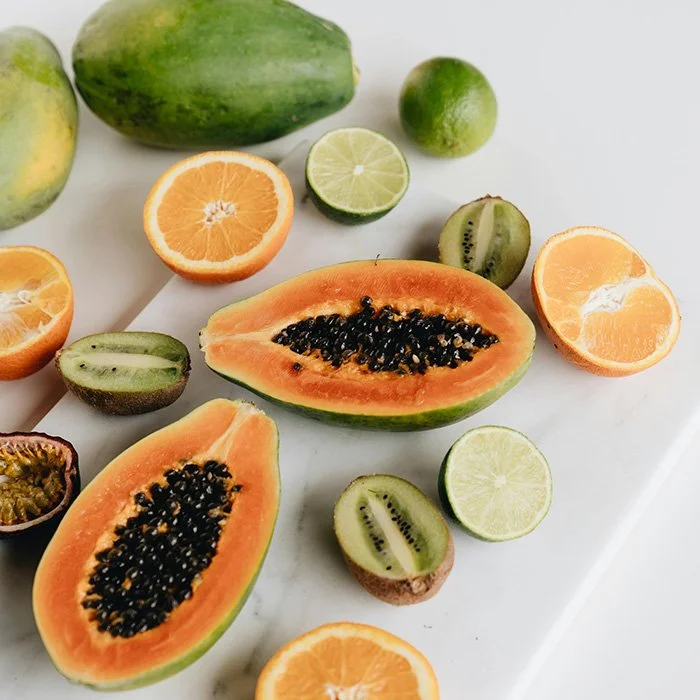Methionine Restricted Diet Guidelines

Methionine Restricted Diet Guidelines
A methionine-restricted diet may be a powerful tool in supporting and managing all forms of cancer because cancer cells are addicted to methionine and methionine comes from only dietary sources.
Keep in mind that this is a highly therapeutic diet and is not intended as a long-term lifestyle. A fruitarian diet may be sustainable for some individuals.
A methionine-restricted diet is also effective for weight loss, but for some individuals who are underweight, this diet must be modified for higher caloric intake. For individuals at or near normal weight, one must closely monitor their body weight and modify the diet as needed to sustain a healthy weight.
It is highly recommended that one follow food-combining principles to optimise digestion and elimination. The key principle is not combining fruits and vegetables in the same meal, and not eating fruit for dessert after a vegetable-based meal.
Fruits
- All fruits are acceptable.
- Always incorporate pineapple, mango, papaya, and kiwi fruit.
- Fruits may be fresh, frozen, or dehydrated.
- Fruit juices such as freshly squeezed citrus are acceptable.
- Concord grape and pomegranate juice are good if they are not made from concentrate.
Vegetables
- Vegetables vary in methionine content. Avoid or limit dark green vegetables such as spinach, broccoli, and kale.
- Focus on starchy vegetables such as potatoes and hard winter squashes. An excess of salads and low-calorie vegetables will cause weight loss.
Seasonings and Spices
All seasonings and spices including salt and pepper are allowed.
Sweeteners
Honey and agave nectar are acceptable. Avoid table sugar and maple syrup.
Nuts
No nuts, nut mylks, or any kind of nut butter are allowed because of their very high methionine content.
Seeds
No seeds, seed milks, or seed butters are allowed because of high methionine content.
Grains
No grains, grain products, or grain flours are allowed. This includes all pastas.
Beans (legumes)
No beans are allowed because of high methionine content.
Milk Alternatives (Nut and Seed Mylks)
Do not consume any nut or seed milks. The amount of methionine is significant and will add to the daily budget.
Processed Foods
Highly processed foods should be avoided. Avoid all foods that contain preservatives, artificial flavorings, and food dyes.
Oils
All oils contain zero methionine but must be limited to keep fat intake below 10% of total calories. Olive oil is preferred over other oils.
Beverages
Avoid coffee. Drink green tea or any herbal teas.
Probiotics
Raw unpasteurized sauerkraut or kimchee are recommended.
Want to speak to our Integrative Health Specialists about nutritional and cancer support? Call 09 600 2759
Contact UsDisclaimer: This website does not provide medical advice. The information including text, graphics, and images, are for informational purposes only. No material on this site is intended to be a substitute for professional medical advice, diagnosis, or treatment. Always seek the advice of your physician or other qualified healthcare provider with any questions you may have regarding a medical condition or treatment.
Read More...

Anemia and Cancer
There are many factors that may contribute to anemia in cancer patients such as the type and extent of malignancy, treatments (conventional, how frequent, type), patient age, other medical issues and medication side effects....
29 October, 2023 No comment

Breast Cancer Medications Funded in Australia but not New Zealand
Govt spending on medicines per capita is lower here in New Zealand than in most OECD countries, and access to new Breast Cancer medications has been sluggish....
05 November, 2023 No comment

Cancer Surgery – If you are faced with surgery, what you need to ask first
Cancer surgery can be a component of cancer treatment for many patients. It is essential to have a thorough understanding of the procedure, potential risks, and the recovery process....
19 April, 2023 No comment

